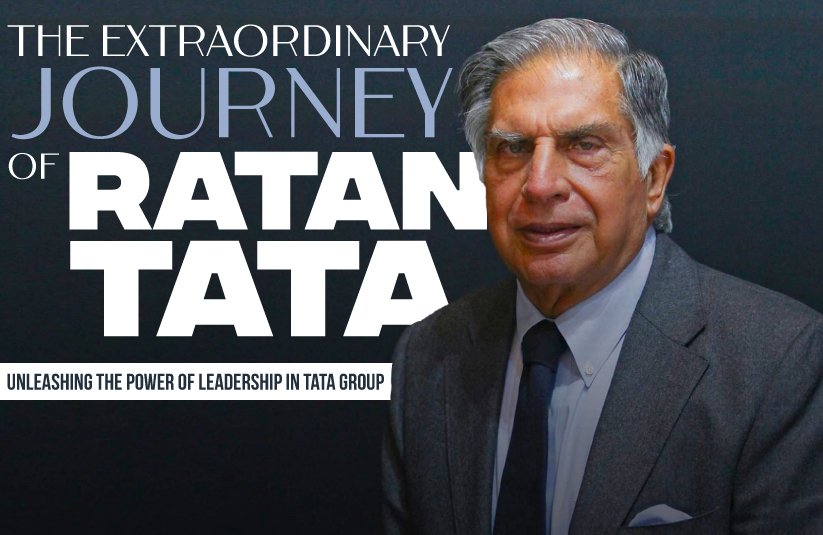
With deep sadness, we express our heartfelt condolences to Ratan Tata, a figure known for his forward-thinking leadership, charitable work, and business creativity. Throughout the years, he has become a global symbol, leaving a lasting impact across industries such as steel, telecommunications, and especially the automotive sector with Tata Motors. While we grieve his passing, we also celebrate his remarkable achievements, particularly his role in transforming the Indian automotive sector.
Early Life and Humble Beginnings: Ratan Tata was born in 1937 into one of India’s most respected business families. Even though he was part of the Tata family, his path to success was unique. He began his career on the shop floor instead of being handed a position. After studying architecture and structural engineering at Cornell University and completing a management program at Harvard Business School, he returned to India and joined the Tata Group in 1961. He faced early challenges while working in various divisions, but his hands-on experience shaped his leadership style, which emphasized empathy, hard work, and innovation.
Taking the Reins: Ratan Tata as Chairman In 1991, Ratan Tata became the Chairman of Tata Sons, the main company of the Tata Group. This was a critical time, as the group faced many challenges at home and abroad. Under his guidance, Tata expanded into new fields like IT, communications, and consumer goods, while also focusing on growing and modernizing Tata Motors.
The Transformation of Tata Motors: A Legacy of Innovation Ratan Tata made a significant impact on Tata Motors. His goal was not just to sell cars but to make vehicles accessible to millions of Indians and to elevate the company on the global stage. Here are some key milestones of his contributions to Tata Motors:
- Tata Indica: India’s First Indigenous Car In 1998, Tata Motors introduced the Tata Indica, which was India’s first fully developed passenger car. Initial reactions were mixed, but the Indica quickly became a best-seller, changing the landscape of the Indian automotive market. Its success established Tata Motors as a leader in India.
- The Acquisition of Jaguar and Land Rover One of the boldest decisions during Ratan Tata’s leadership was acquiring Jaguar Land Rover (JLR) in 2008. Many experts questioned this choice, but Tata’s vision turned it into one of the company’s best decisions. This acquisition not only expanded Tata Motors’ global presence but also revived these luxury brands, showcasing Tata’s ability as a global business leader.
- Tata Nano: The People’s Car Ratan Tata’s ambitious project, the Tata Nano, was launched in 2008 and was known as the “people’s car.” Priced at ₹1 lakh (about $2,500 at that time), it aimed to be the most affordable car globally. While the Nano didn’t reach the expected commercial success, its creation highlighted Tata’s innovative approach and his goal of making car ownership possible for everyone.
- Electric Mobility: The Future of Tata Motors Ratan Tata had a vision for sustainable mobility long before electric vehicles (EVs) became popular worldwide. Today, Tata Motors is leading the EV market in India, with models like the Tata Nexon EV setting new standards. Tata’s commitment to electric vehicles demonstrates his dedication to a sustainable and greener future.
Leadership Style: A Modest Visionary
Ratan Tata had a distinctive way of leading. Even though he was the leader of one of the biggest companies in the world, he stayed humble and easy to talk to. His employees often describe him as someone who genuinely cared about their happiness and worked hard for the success of the company and the country. One of his key qualities was his empathy; he was just as focused on his employees’ achievements as he was on the company’s success. In an interview, he noted, “I don’t believe in making the right decisions. I make decisions and then make them right.” This mindset helped guide Tata Motors and the Tata Group to reach incredible heights.
Philanthropy: A Compassionate Heart
Ratan Tata’s accomplishments go well beyond business. His charity work, especially through the Tata Trusts, has changed millions of lives in India. These trusts work on education, healthcare, rural development, and social welfare. A large part of Tata Group’s profits goes into these initiatives, making it one of the most responsible companies in the world. He also strongly supported sustainability and ethical business practices. Even after stepping down as chairman in 2012, Ratan Tata stayed active in charity work and continued to mentor young businesspeople, cementing his legacy not just as a businessman but as a true humanitarian.
Awards and Recognition
Throughout his successful career, Ratan Tata received numerous accolades both in India and globally. He was honored with the Padma Bhushan in 2000 and the Padma Vibhushan in 2008, two of India’s highest civilian awards. In 2021, he received the Global Visionary of Sustainable Business and Peace award from the Global Alliance for a Sustainable Planet, among many other honors.
Conclusion: An Enduring Legacy
As we remember one of the greatest industrialists of our time, it’s important to consider Ratan Tata’s lasting impact. His contributions to Tata Motors and the automotive sector have been significant, but more importantly, his leadership has motivated many entrepreneurs and business leaders around the world. His humility, vision, and commitment to excellence will always be cherished. At JP Motors India, we mourn the loss of this inspiring leader and offer our heartfelt condolences to his family and the entire Tata Group. Ratan Tata may no longer be with us, but his spirit and vision will continue to inspire future generations.

